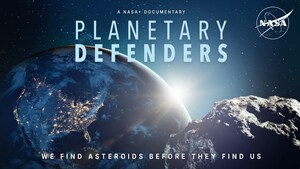HOUSTON, June 27, 2013 /PRNewswire-USNewswire/ -- NASA Johnson Space Center and Deloitte have joined in a strategic partnership offering advanced risk-management services to oil and gas companies. The Space Act Agreement commencement ceremony took place Thursday, June 27.
(Logo: http://photos.prnewswire.com/prnh/20081007/38461LOGO)
A core value of NASA is safety, which serves as a cornerstone of mission success. This collaboration will enforce NASA's constant attention to safety as a cornerstone upon which it operates as safely as possible. Through this collaboration, NASA will gain knowledge to help prepare for future missions and to enhance current safety and risk mitigation technologies to address the dynamic, harsh, and remote requirements of emergent programs.
As part of the alliance, NASA and Deloitte jointly will offer a range of capabilities in the quickly evolving risk-sciences arena, such as "risk modeling and simulation," to help oil and gas companies eliminate blind spots in their decision making.
These capabilities include several operational risk-management approaches aimed at companies seeking to minimize the risk of catastrophic failures – the kinds of dramatic mishaps that, while highly unlikely, can occur in remote and harsh environments.
Using sophisticated risk-modeling and simulation tools and techniques can reduce uncertainties in engineering and operations at oil and gas companies – in much the same way NASA has done in its human spaceflight programs.
"NASA is a leader in applying risk strategy to highly complex systems that operate in extremely demanding environments, while Deloitte is a leader in providing valuable professional services to the full range of oil and gas companies," said veteran astronaut William "Bill" McArthur Jr., JSC director of Safety and Mission Assurance.
"Energy companies facing catastrophic consequences from low probability risks will now have a range of tools and techniques to minimize the probability of these risks and improve their overall safety culture."
NASA also feels that its strategic alliance with Deloitte has the potential for expanding beyond the oil and gas industry – potentially advancing NASA's mission to commercialize its scientific capabilities.
"Deloitte's risk intelligence strength in industries like healthcare and government align with our own directorates at JSC and represent a fertile opportunity to bring new analytics and modeling services to additional industries," concluded McArthur.
Included in the agreement signing ceremony were Johnson Deputy Center Director Steve Altemus, who joined McArthur and Deloitte & Touche LLP principal David Traylor along with John England, vice chairman, Deloitte LLP, and leader of Deloitte's oil and gas practice.
"Activities like deep-water drilling, undersea production and pipeline operations all face the same kind of 'black swan' events that pose a threat to space exploration," Traylor said. "Our strategic alliance with NASA will integrate the space agency's 50-plus years of experience preventing and recovering from catastrophic accidents in human spaceflight into Deloitte's advanced-risk strategies – applying state-of-science capabilities to oil and gas companies back here on earth.
"Ultimately, proactively identifying and mitigating low-probability yet high-impact events can save lives, resources, money, reputation and environmental disruption," Traylor added.
Such services apply sophisticated risk-modeling and simulation tools and techniques like "Bayesian networks" and "agent-based modeling" to reduce uncertainties in engineering and operations at oil and gas companies – in much the same way NASA has done with its space program. For example, as part of NASA's final space shuttle mission of Atlantis (STS-135), "risk-modeling and simulation" techniques were used to evaluate the potential risk scenarios of using a Soyuz spacecraft to rescue a stranded crew from the International Space Station with no backup shuttle capability any longer. This process identified risks linked with the Russian vehicle and helped drive a decision to extend crew time on the space station.
Deloitte and NASA also expect that oil and gas companies will find Deloitte's risk-sensing services valuable in "emerging risk identification" – a set of complex tools and techniques, like "precursor analysis" and "event-occurrence trending," which can predict changes in risk likelihood.
NASA used these techniques when it was having problems with the space shuttle's attitude control thrusters, which could limit the ability to control the position of the shuttle while in orbit. Because the thrusters could not be tested on the ground, "precursor analysis" was used to determine leading indicators and surrounding events preceding thruster usage – allowing the space agency to resolve the problems before future missions.
Deloitte and NASA's offerings will also include what Traylor called "dynamically improving risk-management techniques," such as artificial-intelligence tools applied to remote decision-support systems.
In addition, Deloitte and NASA will offer services aimed at helping oil and gas companies measure and monitor the effectiveness of their risk culture among their employees and contractors – enabling them to detect whether their work environments and processes are increasing the likelihood of a risk occurring.
NASA regularly measures its own safety culture using these same techniques, including assessment reviews to identify warning signs of "cultural deterioration" that could lead to poor risk decisions.
Johnson Space Center is home to the International Space Station Program and the primary training facility for NASA's astronaut corps. For more information about Johnson, visit:
As used in this release, "Deloitte" means Deloitte LLP and its subsidiaries. Please see www.deloitte.com/us/about for a detailed description of the legal structure of Deloitte LLP and its subsidiaries. Certain services may not be available to attest clients under the rules and regulations of public accounting.
NASA Johnson Space Center news releases and other information are available automatically by sending an Internet electronic mail message to [email protected]. In the body of the message (not the subject line) users should type "subscribe hsfnews" (no quotes). This will add the email address that sent the subscribe message to the news release distribution list. The system will reply with a confirmation via E-mail of each subscription. Once you have subscribed you will receive future news releases via e-mail.
SOURCE NASA
WANT YOUR COMPANY'S NEWS FEATURED ON PRNEWSWIRE.COM?
Newsrooms &
Influencers
Digital Media
Outlets
Journalists
Opted In






Share this article